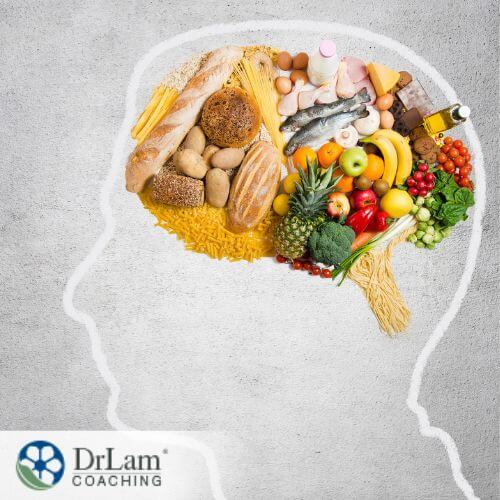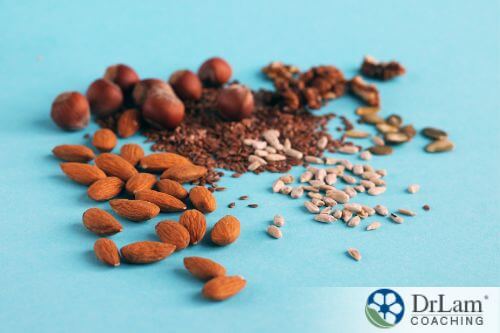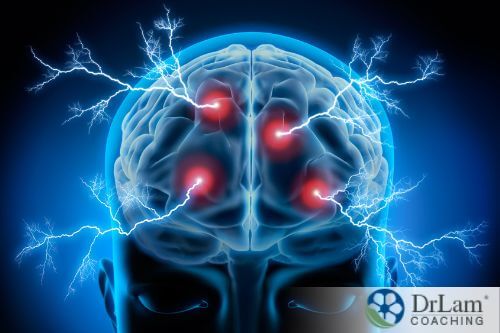 Have you been experiencing brain fog or forgetfulness lately? These symptoms, along with other signs, indicate poor brain function. What you need are nutrients for brain health.
Have you been experiencing brain fog or forgetfulness lately? These symptoms, along with other signs, indicate poor brain function. What you need are nutrients for brain health.
The brain weighs about three pounds, but it packs a heavy workload. In addition, the brain acts as the command center instructing your body to perform various functions. Thus, it is crucial to keep your brain in excellent shape.
The foods you eat affect your brain’s structure and performance. Nutrients include vitamins B, E, and K. Lycopene, omega-3 fatty acids, and zinc also plays a role in brain health. Brain foods include fish, vegetables, berries, grains, and nuts. Surprisingly dark chocolates, coffee, and tea also help maintain a healthy brain.
But some foods and lifestyles negatively impact your brain. For example, you can avoid excess intake of carbohydrates, sugar, processed meats, trans fats, and alcohol. These poor diet choices and life’s stresses can be harmful to the brain.
There are six nutrients for brain health. These vitamins and minerals contribute to improving your memory and mental functions. People with Alzheimer’s, the most common dementia, benefit from these nutrients. However, it is best to consult a medical practitioner for proper evaluation, intervention, and precaution.
It supports the body’s cells to function by converting food into energy. Besides physical benefits, it boosts your mental performance and alleviates your mood. It relieves stress and reduces symptoms of anxiety and depression.
Many adults, though, suffer from vitamin B deficiency without their knowledge. In addition, a study reveals that low levels of vitamin B12 or folate show a decline in cognitive performance.
Alpha-tocopherol is a powerful antioxidant. It powers up your memory and prevents the deterioration of cognitive abilities as you age. People rarely have vitamin E deficiency, unlike vitamin B, which is more prevalent. However, age-related conditions like Alzheimer’s pose a need for vitamin E supplementation.
Researchers investigated 613 people with mild to moderate Alzheimer’s. The study shows that participants who took 2000 IU/d of alpha-tocopherol led to slower functional decline than those who received placebo and memantine.
This high dose, though, may be unsafe, according to experts. So they recommend proper dosage and frequency to prevent adverse effects.
Your bones and heart benefit from vitamin K, and so does your brain. Your body needs vitamin K for blood clotting and bone-building. In addition, a growing body of evidence suggests the importance of vitamin K to cognitive performance.
One study points out that lack of vitamin K was linked to age-related or neurodegenerative conditions in older adults. However, more studies have yet to be conducted to support this claim.
 It gives a red or orange pigment to carrots and tomatoes. In addition, a plant-based antioxidant, lycopene, has been used for cancer prevention. It also protects your brain from age-related conditions and improves cognitive deficits.
It gives a red or orange pigment to carrots and tomatoes. In addition, a plant-based antioxidant, lycopene, has been used for cancer prevention. It also protects your brain from age-related conditions and improves cognitive deficits.
Recent studies on animals show lycopene inhibits oxidative stress, which suppresses inflammation. Inflammation, if left unchecked, causes brain conditions like dementia. Therefore, researchers recommend nutrients for brain health, like lycopene, to prevent Alzheimer’s.
Omega-3 fatty acids can prevent bones, joints, and heart conditions like arthritis and stroke. Moreover, it protects against progressive brain-wasting or mental decline.
Researchers in a study recommend omega-3 fatty acid supplementation. Docosahexaenoic acid, a form of omega-3 fatty acid, benefits the brain, behavior, and mood disorders.
Moreover, a 2018 systematic review also highlights the need for omega-3 fatty acid supplementation among older adults for better brain health.
It boosts the immune system and reduces inflammation that causes various medical conditions. In addition, its antioxidant properties protect the body from bacteria and viruses.
A study reveals that excess zinc after brain injury can result in more damage to the brain. In contrast, a deficiency in zinc leads to a decline in learning and memory apparent in neurodegenerative diseases. Thus, medical practitioners carefully consider the dosage and frequency of zinc for every person.
Your brain needs about 320 calories to do mental work, according to a distinguished professor at the Washington University School of Medicine.
Other than calories, you need nutrients for brain health found in various sources. These foods contain lycopene, omega-3 fatty acids, zinc, and vitamins B, E, and K to maintain brain structure and function.
Mono or polyunsaturated fats promote overall health. In contrast, saturated or trans fats increase the risk of developing diseases.
You can get good fats from fatty fish. Fish with high levels of omega-3 fatty acids include cod, herring, mackerel, pollack, salmon, sardines, and tuna. In addition, these fishes have low levels of mercury, which can be harmful when eaten regularly.
You can add broccoli, cabbage, kale, and spinach to your list of brain foods. These plant-based foods or green leafy vegetables are rich in vitamins B12, E, and K.
Researchers conducted a study of 960 participants aged 58-99 years old in a Memory and Aging Project. They found that one serving of green leafy vegetables daily helped slow down mental decline.
Berries are rich in flavonoids, which give their vivid color. They also contain phytochemicals like caffeic acid and catechin, which protect cells from injury.
So, what is the best kind of berries to eat – blackberry, blueberry, blackcurrant, bilberry, mulberry, or strawberry? The answer is all of the above!
A study reveals that these berries delay the development of neurodegenerative conditions. In addition, berries as antioxidants combat oxidative stress and inflammation. Inflammation contributes to aging and age-related cognitive problems.
Whole grains contain vitamin B and E, nutrients for brain health. They reduce inflammation in the brain and keep your memory intact.
A study shows low intake of whole grains contributes to higher inflammation. Increased inflammation in the brain leads to speeding up of cognitive decline in older adults.
You may consider gluten-free grains to help reduce inflammation. You can add whole-grain bread or pasta, brown rice, and oatmeal to your cart.
 Almonds, hazelnuts, and sunflower seeds contain vitamin E. A study shows that regularly eating nuts strengthens brainwaves. Researchers said that strong frequencies are linked to cognitive functions. It includes healing, learning, and memory.
Almonds, hazelnuts, and sunflower seeds contain vitamin E. A study shows that regularly eating nuts strengthens brainwaves. Researchers said that strong frequencies are linked to cognitive functions. It includes healing, learning, and memory.
Peanuts and walnuts are also equally good brain foods that contain vitamin E and resveratrol, an antioxidant. It prevents inflammation responsible for brain problems like Alzheimer’s.
At the same time, a study shows peptides from walnuts exhibit protective effects on the brain. Walnuts reduced learning and memory difficulties as a result.
These three foods are grouped separately from other sources of nutrients for brain health. Unlike naturally grown foods, coffee, tea, and dark chocolate go through a production process.
People enjoy dark chocolate-like candy or as a beverage, like coffee and tea. They have brain health benefits in the right amount and frequency.
Researchers from John Hopkins University conducted a study among regular coffee and non-coffee consumers. First, the researchers asked the participants to study images. Then, five minutes later, the participants received either a 200 mg caffeine tablet or a placebo.
Participants who took caffeine correctly identified the images the next day. The researchers concluded that coffee stimulates recall or enhances memory.
Some people prefer tea over coffee. Regardless of your choice, both beverages are beneficial for you. A study presents the first evidence of tea as a brain-healthy drink.
The researchers investigated the brain structures of 15 tea drinkers and 21 non-tea drinkers. The study reveals that tea drinking results in a healthy brain structure. In addition, it protected the brain organization from decline due to aging.
Do you have a sweet tooth? If not, you may start considering dark chocolate as a dessert. Dark chocolate is rich in flavonoids which positively impact mental performance.
Twenty healthy people received dark chocolate for eight days during a study . The brain evaluation shows dark chocolate increased activity in the temporo-occipital region. This part of the brain is involved in higher brain functions like calculating, language, memory, reading, and writing.
Your diet and lifestyle play a role in keeping your brain healthy. And there are external factors to consider. For example, like you, people typically experience stress.
Your body has a natural way of dealing with stress. Six biological circuits compose the NeuroEndoMetabolic (NEM) Stress Response. Imagine it as an orchestra where each circuit plays a specific piece. Each piece, when combined, creates the music, or it keeps your body in peak performance.
In stressful situations, your body fights off stress as it releases norepinephrine. As a result, your body becomes more alert and reacts faster to stressful events. Your body can also release epinephrine or adrenalin. It causes an increase in blood pressure, heart rate, and physical strength to counter stress.
However, stress can become prolonged and overwhelming. This condition can lead to Adrenal Fatigue Syndrome (AFS). AFS adversely affects your brain’s chemicals or neurotransmitters and their functions.
 You can encounter health problems when there is a brain neurotransmitter imbalance. Other causes of neurotransmitter imbalance are genetics, environmental toxins, and poor diet.
You can encounter health problems when there is a brain neurotransmitter imbalance. Other causes of neurotransmitter imbalance are genetics, environmental toxins, and poor diet.
Moreover, stress severely affects one of the six circuits of NEM Stress Response, the Neuroaffect circuit. The autonomic nervous system, brain, and microbiome make up the Neuroaffect circuit.
Remember the orchestra? The music can not play perfectly if an instrument is dysfunctional. Therefore, it is crucial to create a health plan if and when this happens. It includes modifying your lifestyle and diet. Examples are gluten-free foods and stimulants like coffee in moderation.
Nutrients for brain health are essential. You may be getting enough nutrients from the foods you eat. However, you can also take note of the ones you should avoid. These five foods are the brain’s worst enemies.
Health experts suggest moderate alcohol drinking. You can enjoy a drink not exceeding two glasses for men and one glass for women per day. Above the acceptable limit results in severe brain problems in the long run.
According to the National Institute on Alcohol Abuse and Alcoholism (NIAAA), heavy drinking causes blackouts and lapses in memory. In addition, NIAAA estimated that 80% of alcohol drinkers with thiamine deficiency have Wernicke-Korsakoff Syndrome.
This syndrome severely damages the brain. Symptoms include memory and sight problems, mental confusion, and trouble with muscle coordination.
Carbohydrates with a high glycemic index negatively affect the brain. These carbohydrates are white bread, crackers, cereals, and doughnuts.
A 2021 longitudinal study reveals high glycemic directly led to the buildup of amyloid in the brain. Amyloid plaque accumulation refers to the development of Alzheimer’s. Other related studies point out that high consumption of carbohydrates increases the risk for dementia.
Carbohydrates affect children’s mental capabilities, too. Consuming refined carbohydrates lowered non-verbal intelligence scores based on a study of 245 students from 129 schools. Other researchers need to conduct further studies to validate the conclusion.
Unsaturated fats and trans fats are bad fats. There are several conflicting studies on the effects of trans fat on the brain. However, many studies show an increased risk of Alzheimer’s when people consume foods high in trans fats.
Some foods with high trans fats:
To be sure, you can check the product's nutritional label for trans fat content. However, leaving the items on the grocery shelf away from your pantry is advisable. Instead, try to pick the ones with nutrients for brain health.
Your body needs fats, sugar, and salt to function correctly. But most processed foods contain high amounts of fats, sugar, and salt. High fats, sugar, and salt can cause obesity, diabetes, hypertension, and brain problems.
Researchers conducted a large-scale study of 18,080 people. It reveals a diet of high fats and processed meats were linked to lower cognitive scores, like learning and memory. But, of course, you can eat processed foods once in a while. Or you can completely replace them with naturally grown meats, vegetables, and fruits.
As the central command post, your brain demands energy to function correctly. Therefore, it depends on glucose as the source to fuel learning, memory, and thinking.
In contrast, the excess sugar does the opposite. A study shows high-fructose diet of rat subjects impaired brain function, learning, and memory. In addition, it increases the risk of developing neurodegenerative conditions like dementia. Although, more research on humans is needed to validate this finding.
Long-term stress can take a toll on your health. It is best to seek medical help if you suffer from brain fog, forgetfulness, or other cognitive difficulties.
In the meantime, take note that nutrients for brain health are vital for your general well-being. It is crucial to maintain the balance of neurotransmitters in your Neuroaffect circuit.
Diet and lifestyle contribute to typical brain structure and function. So eat the right foods and avoid those that can cause brain problems.
Please share with us how you are feeling today. First, let’s discuss your symptoms. Then, to ease your worries, call us at +1-626-571-1234 for a free consultation.
Nutrients for brain health include vitamins B, E, and K. Lycopene, omega-3 fatty acids, and zinc is also essential. Fish, vegetables, fruits, grains, nuts, coffee, tea, and dark chocolates are some brain foods.